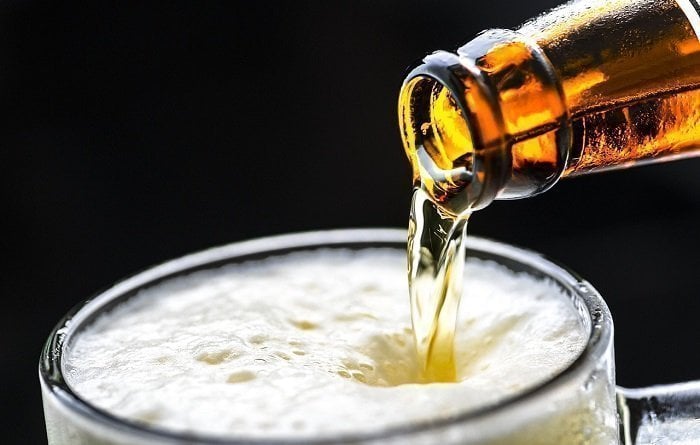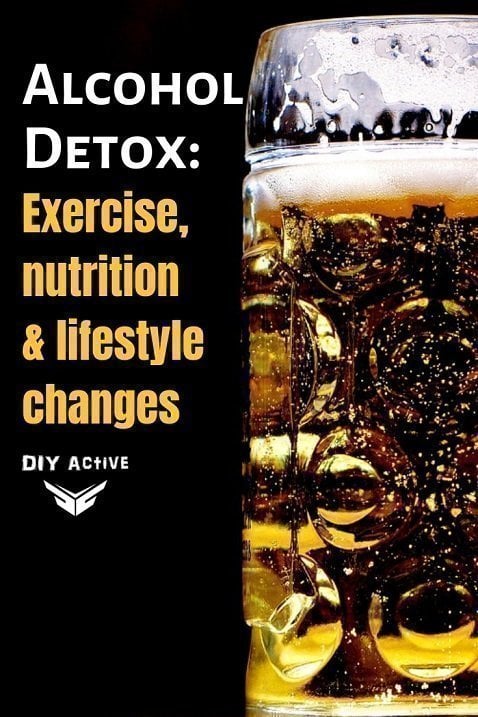
Your Lifestyle and Alcohol Detoxification
While there might be a long way from the occasional social drinking to alcoholism, the entire subject can be a slippery slope, when you start overlooking the word moderation. Regardless of what were the factors that determined you to consume more alcohol than recommended, once you rely on alcoholic beverages to have fun, relax or forget about your problems, you may be faced with an actual addiction.
Alcohol detoxification and your life
Alcoholism can affect your quality of life tremendously, and once you notice that it has become extremely difficult for you to refrain yourself from drinking on a daily basis, you will need to face reality, and cut out alcohol from your life entirely, at least until you will be able to keep your drinking to moderate levels again.
Actually going to rehab may or may not be a necessity, depending on the situation, but professional rehabilitation aside, there are other things you are recommended to do, in order to access proper detoxification.
The following tips might provide you with a bit of support on alcohol detoxification.
Start getting active
 As soon as you decide to no longer let addiction control your life, one of the most important recommendations to look into is prioritizing exercise.
As soon as you decide to no longer let addiction control your life, one of the most important recommendations to look into is prioritizing exercise.
Working out has been pointed out on numerous occasions to aid addiction recovery, and staying active will be an essential part of your healing process, helping you not only physically, but mentally as well.
If you have been drinking for quite a lot of time, your fitness level might be a poor one at the moment, and it’s understandable, considering fitness and alcohol have an opposing relationship.
One of the reasons why proper exercise is so widely recommended to struggling alcoholics is because it will also combat the many negative effects drinking has had on your health.
Going for a run when you are experiencing a huge alcohol craving, for example, can numb that unpleasant sensation and help you avoid temptation.
Working out is something you will need to start focusing on, and for the results to actually be optimal, you need to create a daily program that includes different types of exercises. You can either work with a personal trainer (if you need someone to constantly motivate you, this will be the ideal option), or set up an itinerary on your own, based on information collected online.
Because you are not exercising for the sole purpose of getting in shape, but as a method of detoxification your body and keeping yourself away from bad habits, you will need to work out on a daily basis, as difficult as it may be.
Start and finish your day with at least 30 minutes of exercise, and the difference will be noticeable.
Be aware of withdrawal symptoms
Before you actually proceed with the detoxification and cut out any alcoholic beverages, you need to be aware of the symptoms you will be experiencing.
Knowing what lies ahead will help you overcome challenges in a more effective manner, so being properly informed on the subject can actually make a difference.
From the more manageable sensations experienced in phase one of the withdrawal, such as anxiety, a state of fatigue and depression, to severe symptoms that might be encountered by long-term drinkers in stage four, including delirium and hallucinations, the symptoms are various and are different from one individual to another.
If you consider yourself a heavy drinker at the moment, you need to research all of the symptoms with care and be prepared to tackle them accordingly.
You can learn more about alcohol withdrawal symptoms by discussing with a specialist or browsing the internet for info.
Reassess your dietary choices
What you choose to eat from now on is also highly relevant in the entire detoxification process. Even if you might not have thought about it, eating the right foods can actually ease your recovery.
The harmful chemicals you have piled up in your body due to alcohol consumption will lead to nausea, vomiting, and other similar issues, which means, what you include in your diet can either ease those symptoms or make them worse.
Create a balanced, nutritious diet plan that includes all food groups, and stay away from unhealthy choices, such as sugary treats or fast food. Eating better and drinking plenty of water will soon help you feel better.
See a therapist
The psychological effects of alcoholism cannot be neglected here, and while it’s important to start living in a healthier manner, by becoming more active and eating better, you need to handle the mental factor involved as well, and only a therapist can provide you with the necessary support.
Seeing a therapist can be more beneficial than you think. They will keep you grounded throughout the entire detoxification period, helping you handle your emotions triggered by withdrawal in the healthiest way.
Seeing a therapist, exercising, dieting, together with other lifestyle changes that might work for you personally (such as developing a hobby) will take you from simple detoxification to actual recovery.
Detoxification doesn’t put an end to your addiction
One last thing that needs to be mentioned here is that you shouldn’t confuse alcohol detoxification with actual full addiction recovery.
While there might no longer be alcohol in your system and you are fighting to stay sober, that doesn’t mean you will no longer experience cravings, or be tempted to fall back into your old ways.
Complete recovery from alcoholism requires effort and especially time. Choose to maintain a healthy diet and lifestyle for as long as possible, and use the suggestions above to your utmost advantage.
Freeing yourself from such a serious problem isn’t something that can be done in a day or two, so make sure to stay focused.
Wrap-Up
An alcohols addiction can affect your life in ways you might not have thought possible, and once this becomes an issue that aggravates itself, it’s time to take action and pursue a thorough cleanse of the body and mind.
Withdrawal won’t be as easy to deal with as you might have tended to believe, and you will experience a wide variety of unpleasant symptoms.
This is why you need to use every small detail to your advantage when it comes to alcohol detoxification, and implement the lifestyle, dietary, and exercise changes that will allow you to overcome your addiction and benefit from effective detoxification.
You often need to do more than just go to rehab, so take into account the pointers found here and your efforts will bring you better results



